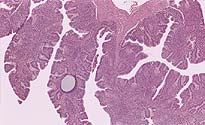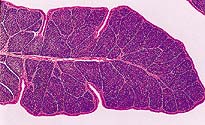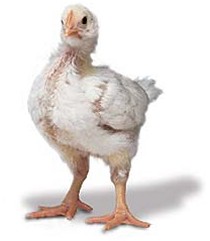Microbiology
Virus Classification
IBDV strains are classified into two distinct serotypes, differentiated by a virus neutralisation test. There is no cross protection between these serotypes.
- Serotype 1 – pathogenic IBDV affecting poultry (classic, hyper or very virulent, variant IBDV strains and all IBDV vaccine strains).
- Serotype 2 – apathogenic IBDV.
Four pathotypes of IBDV serotype 1 have been described referring specifically to virus virulence:
- Mild field and vaccine IBDV strains: cause no mortality or clinical symptoms, but bursal damage dependant on virulence of the virus may still be evident.
- Classical IBDV strains: cause mortality (<20%) and bursal lesions. Able to break through a moderate level of maternal derived antibody.
- Hyper or very virulent IBDV strains: cause severe mortality (>20%) and bursal lesions. Able to break through higher levels of antibody than classical strains.
- Variant IBDV strains: strains that do not express certain virus (neutralisation) epitopes typical for classical strains. Variant strains are able to break through higher levels of maternal derived antibody than classical strains causing an early IBDV infection with severe bursal damage (atrophy), resulting in immunosuppression. Mortality is less than 5%.


Antigenic subtypes of IBDV serotype 1 have been demonstrated by assays such as:
- Cross virus neutralisation (VN)
- Antigen-capture enzyme-linked immunosorbent assays (AC ELISA)
- Reverse transcriptase/polymerase chain reaction – restriction fragment length polymorphism assay (RT/PCR-RFLP or sequencing)
PCR and RFLP do not show antigenic variation but genetic variation which may lead to antigenic variation.
Peer Reviewed by Dr J J (Sjaak) de Wit and William Baxendale.

There is no cross protection between the 2 IBDV serotypes.
